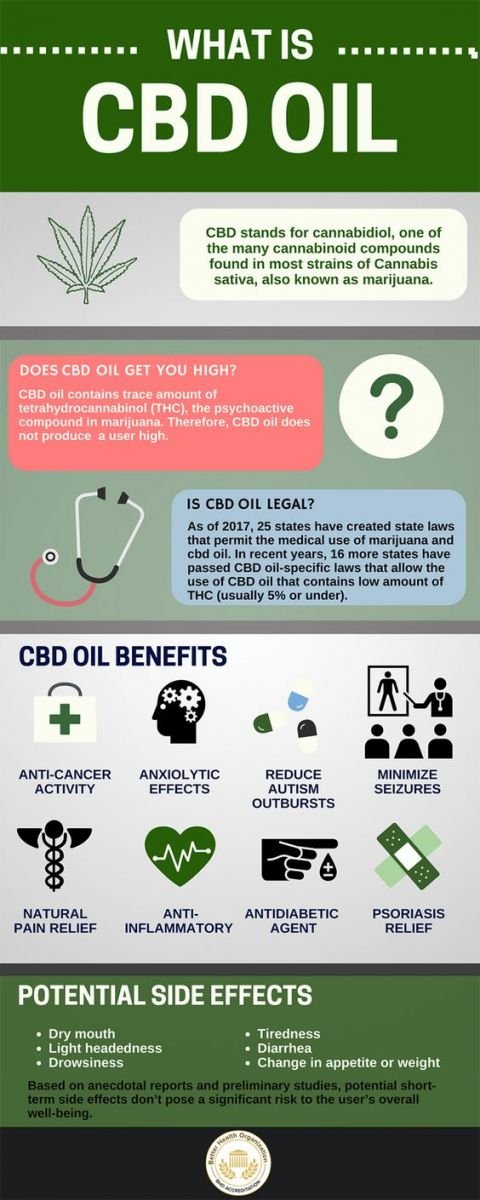One common question beginners or new CBD users ask is “What are the side effects of CBD?” While there aren’t any major serious side effects to taking CBD, there are a few that do exist. We’ll take a deeper look into the top 3 side effects of CBD.
For a long time, many serious illnesses such as Parkinson’s and fibromyalgia were thought to be more or less untreatable, requiring a lifetime subscription to toxic pharmaceutical drugs with awful side effects. There is (understandably) a large movement happening now with CBD as more and more research is showing it’s potential benefits on both people and animals. CBD can potentially heal a variety of ailments or conditions that today are being turned to pharmaceutical drugs.
The pharmaceutical drugs often prescribed to treat these conditions carry a plethora of side effects (often worse than the condition they are treating), which many of us are familiar with from the constant bombardment of big-pharma TV advertising. CBD can often reduce the required dosage for these pharmaceuticals, or altogether eliminate them – all while offering its own set of impressive, proven health benefits.
However, it’s important to be realistic in understanding CBD is not a ‘silver bullet’ or panacea with no drawbacks. While mild in comparison, there are indeed risks to consider when deciding to experiment with cannabidiol therapy.
Common Side Effects of CBD Oil
In clinical studies reference below, the most commonly reported side effects of CBD are:
- Dry Mouth
- Dizziness
- Changes in appetite or weight
- Fatigue
- Diarrhea
- p-Glycoprotein Inhibition
- Reduced Fertilization Capacity
- Reduced Activity of CYP450 Enzymes
Some of these sound serious, some not so much. Most everyone is familiar with dry mouth, dizziness, and diarrhea, but the rest deserve some explanation.

CBD Side Effect #1 – CYP450 Enzyme Inhibition
This CBD side effect is perhaps the one that deserves the most attention. CYP450 enzymes are a family of enzymes produced in the human body that metabolize approximately 60% of all pharmaceutical drugs (for a full list, see here). Personal responsibility and extensive research are tantamount when ingesting CBD due to this side effect, most especially if you are taking any prescription medication. The multitude of ways in which CBD can interact with pharmaceutical drugs is dizzying.
Many drugs increase the enzymes that metabolize CBD, resulting in much lower levels of CBD in your body. Inversely, some drugs may reduce the same enzymes, resulting in much higher concentrations of CBD in your blood than planned. Alternatively, CBD may affect these enzymes, causing an increase/decrease in the amount of that drug in your bloodstream, or a much longer duration of effects than you deem normal. Much of the time, this may only be a slight nuisance (for example with caffeine), but in some cases, the results can be much more severe (i.e., with benzodiazepines, opiates/opioids, HIV antivirals, etc.)
Considering many people try CBD in an attempt to wean off/quit prescription drugs, it is imperative that you start with a very low dose of CBD, and inform yourself regarding the pharmacodynamics (possible interactions) of your particular medication.
CBD Side Effect #2 – Reduced Fertilization Capacity
While this is perhaps not bad news for those of you who don’t want children, for many it is a very adverse side effect of CBD. For sperm to fertilize an egg, something that’s known as an ‘acrosome reaction’ must occur for the sperm to fuse with the egg, and begin to form an embryo. While not necessarily indicative of what may happen in humans, a study of sea urchins demonstrated that sperm pre-treated with CBD were unable to undergo the acrosome reaction, thus preventing fertilization.
Additionally, experts theorize that anandamide, one of the primary cannabinoids produced in the human body (endocannabinoid), is crucial for the implantation of a young embryo in the lining of the uterus. Researchers have also discovered that anandamide levels are highest during ovulation. CBD is known to alter levels of endocannabinoids (such as anandamide), possibly contributing to problems with fertility and egg fertilization. To be safe, CBD is probably best avoided in those seeking to achieve a healthy pregnancy.
CBD Side Effect #3 – p-Glycoprotein Inhibition
Although it doesn’t receive as much attention, p-Glycoprotein is similar to CYP450 enzymes in that it’s directly involved in the activity of various drugs in the human body. It is a ‘plasma membrane protein’ that helps to move drugs in and out of your cells. Many drugs interact with p-Glycoprotein, including HIV antivirals, epilepsy and chemotherapy medication, and steroids. Many drugs interact with both p-Glycoprotein and CYP450 enzymes, meaning that if you are experiencing a severe health issue that requires the use of one of these types of drugs, you should exercise extreme caution when considering the use of CBD. The understanding of these interactions is, at best, in its infancy, and serious complications could arise.
The human body is a very complicated organism, and although CBD has an excellent and well-documented safety profile, it’s impossible to know all the nuances these drugs will have in your body. For a full list of drugs that interact with p-Glycoprotein, please look here. In addition to drug interactions, p-Glycoprotein assists in the removal of substances known as ‘xenobiotics’ from the body. The official definition of a xenobiotic is “a chemical substance found within an organism that is not naturally produced or expected to be present within the organism.”
Xenobiotics could be anything from pesticides to BPA found in plastics to other human-made chemicals in the environment. Reason has it that with the exceptionally high levels of modern environmental pollution, you want all the help you can get to combat this toxicity. It’s unknown exactly how much CBD it takes to reduce p-Glycoprotein levels to a worrying degree, but experts theorize it’s probably those people taking high doses of CBD on a long-term basis that are most at risk.
CBD Side Effects – The Bottom Line
This list of potential side effects from CBD can undoubtedly sound scary, but remember the adage:
“The dose makes the poison.”
Life and the human body are impossibly complex, and you must take everything with a grain of salt. CBD offers relief with minimal side effects for most people, most of the time. Generally, it is people undergoing chemotherapy, treatment for HIV, or other profoundly severe conditions that must tread most carefully with CBD.
For the average healthy person, there is most likely not much to be concerned about when you use CBD in moderation, and in combination with a healthy diet, lifestyle, and exercise regimen. As always, consult with your healthcare provider before embarking on any natural products regimen.

